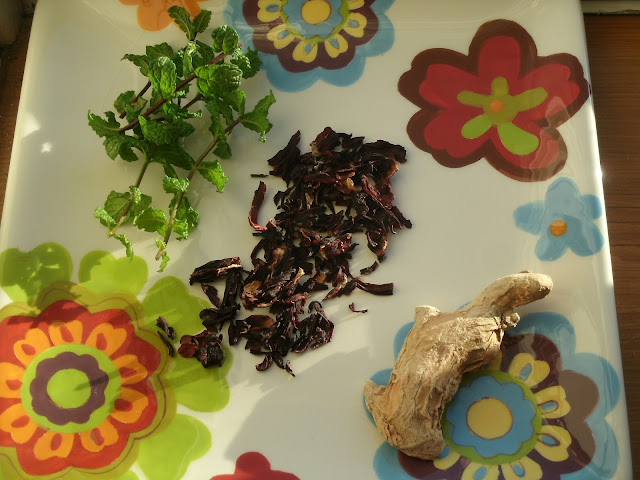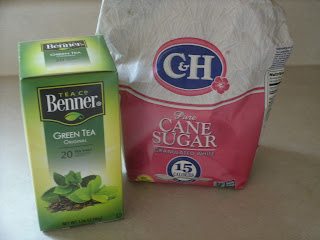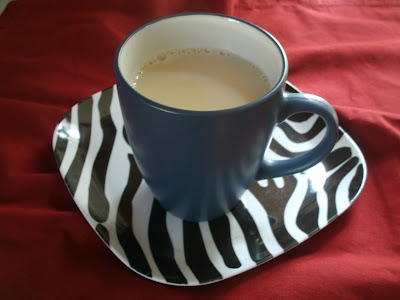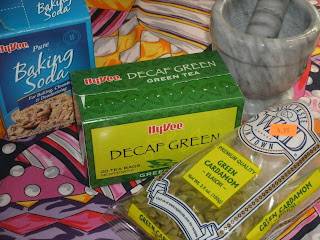Bissap (Hibiscus) tea
Bissap (hibiscus tea revisited)
Burkina Faso and Ghana (just south of Burkina Faso) love their hibiscus tea. I think it's interesting that these neighbors with similar tastes had different colonial rulers. Burkina Faso was French, and Ghana was a British colony. According to the internet, Ghana changed from driving on the left side of the road to the right to match their neighbors. I seem to recall that they changed sides of the road they drove on as a snub to their former colonial rulers. Regardless of this aside, Ghana was the first Sub-Saharan country to gain its independenceGhana listed hibiscus and ginger (which I made for Egypt). Burkina Faso also likes to add mint.
1 tablespoon (4 grams) of hibiscus, some chunks of ginger, a few mint sprigs, and 2 cups (500 ml) water. I put them all in a sauce pan and simmered for 5 minutes. Now I have a little note about the ginger. I normally keep fresh ginger in the freezer because it keeps longer, and is really easy to grate for use in recipes. When I was at the Indian grocery a couple of months ago, I saw dried whole ginger. I looked it up on the internet, and the instructions for use said to soak in hot water for an hour, and use like normal ginger. Let me tell you, these instructions are totally inaccurate. If you do that, the very outer layer will soften a bit, and the rest stays rock hard and dry. Last month when I was coming down with a cold, I simmered one of these pieces for half an hour or so. That softened it up enough I could use my chef knife to chop it up into smaller segments that would eventually hydrate and finally make it like real ginger again. It takes a while, but it did make good ginger tea/broth.
Anyway, what did I cook up this time?
Strain into a cup and add a sprig of mint to serve. There were several countries in West Africa I couldn't find tea for.
Cabo Verde (Cape Verde) is listed as a tea growing country, but everything I could find online was about alcoholic drinks served there. It is a small, island nation that is popular with tourists, and apparently they aren't interested in tea. (What can I say, I've always been an oddball).
Togo is also listed as a tea growing country, but I was never able to find information on how the locals enjoyed it.
The only listing I found for Nigeria was moringa tea. If you remember my post from Benin, you will know that moringa has been designated as a "super food" by the people who want to make a lot of money off of it. The same thing happened to cascara, a tea from Afghanistan. That is a tea made from discarded coffee bean cherries. I looked on Amazon, and both of these items sell for about $20.00 a pound (1/2 kilo). That must be the going price point for ripping people off. Moringa is used fresh as leaves and powder form. I tried the local Indian grocery since this is a plant originally from India. No luck. I found a box of powdered leaves that I thought might be moringa, but when I ran the name on the box through the internet, it turned out to be dried fenugreek leaves. Not the same thing. While I would like to try it to know more about the culture of this region, I continue my boycott of the "super food" stupidity.






Yeah, "super foods" are stupid trends. Maybe it will be affordable sometime in the future when this trend has blown over in favor of something new.
ReplyDeleteMaybe someone should start promoting the 1950s idea that macaroni is a vegetable again. It can be a super food along with ketchup and ranch dressing. People would love that.
Delete